From New York to Southern California, celebrating the 150th anniversary of Frank Lloyd Wright’s birth
- Share via
From New Hampshire to California, with stops in New York and Wisconsin, some of Frank Lloyd Wright’s best-known works are being showcased this summer during the sesquicentennial of the famed architect’s birth.
Wright was born June 8, 1867, and in a career spanning seven decades, he designed buildings, including homes, hotels and churches for clients from coast to coast.
Wright conceptualized about 1,000 buildings, more than half of which were constructed, according to curators at New York City’s Metropolitan Museum of Art.
MoMA’s tribute to Wright — “Frank Lloyd Wright at 150: Unpacking the Archive” — is suitably named.
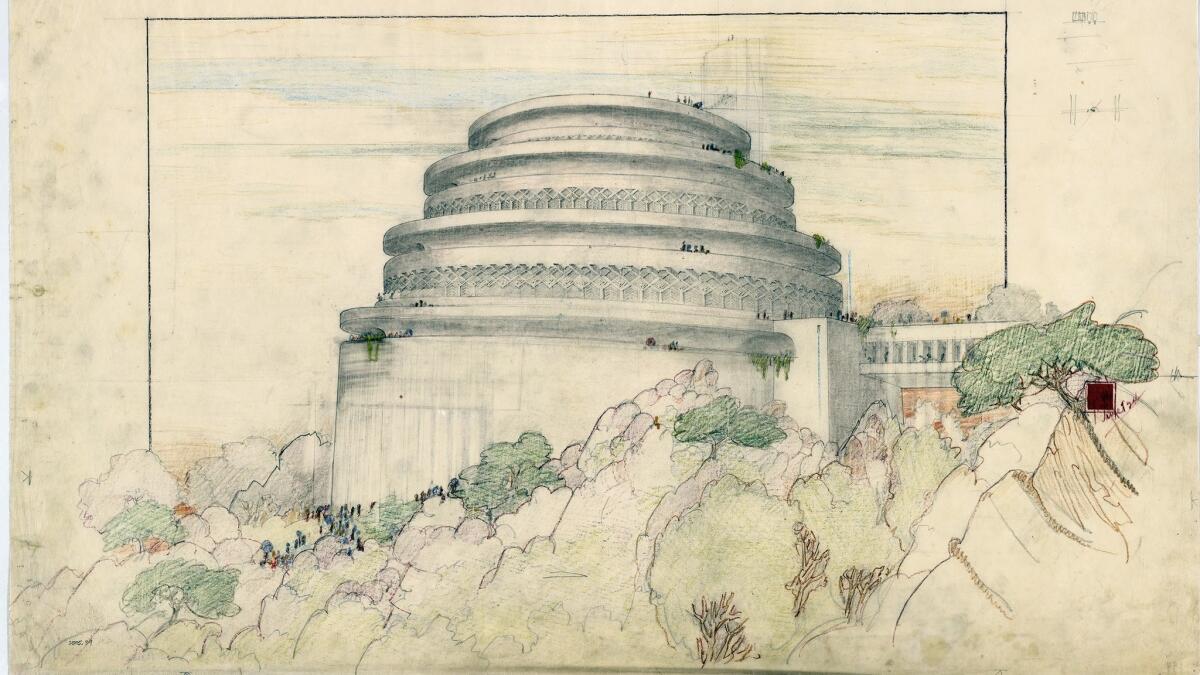
Museum employees perused 55,000 drawings, 125,000 photographs and 300,000 pages of correspondence, plus building fragments, models and other materials in planning the exhibit. It opened in mid-June and continues through Oct. 1.
On display are nearly 400 examples of Wright’s works from the 1890s through the 1950s. Many of them have rarely, or never, been publicly seen.
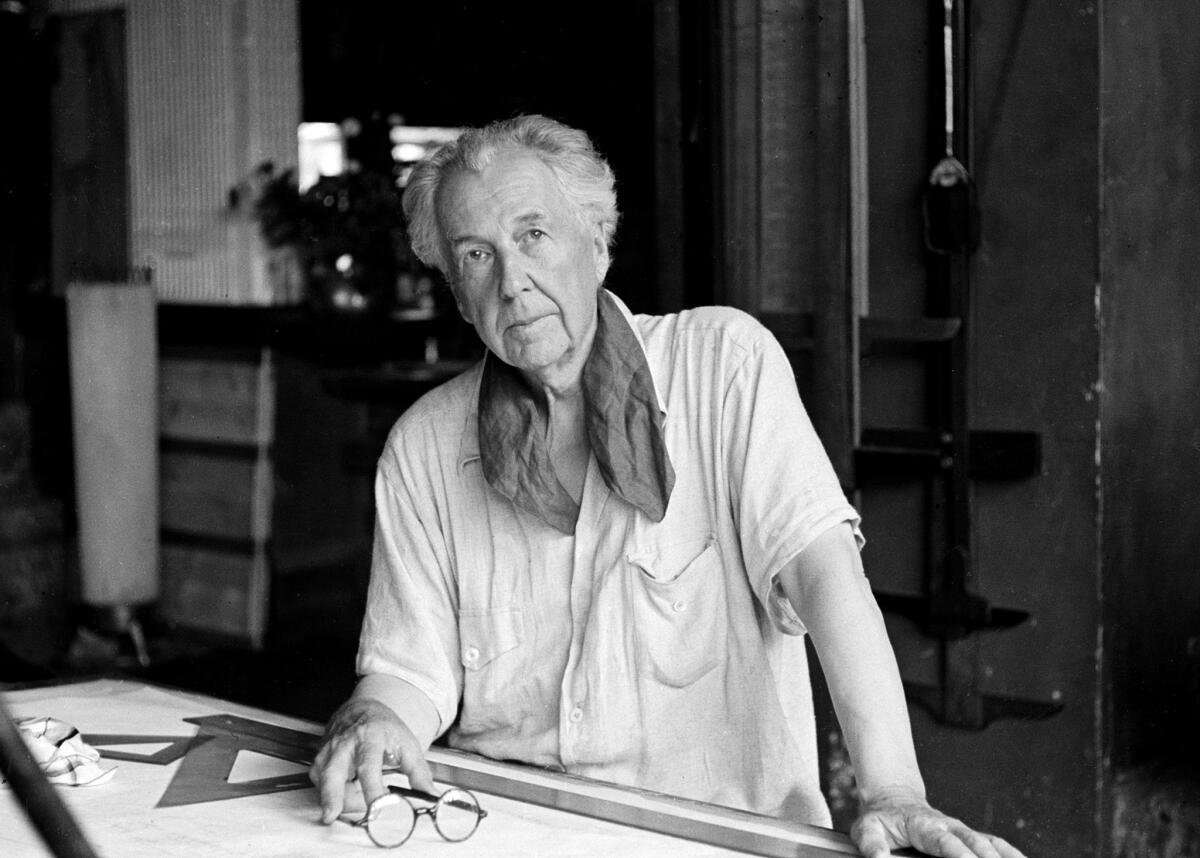
Frank Lloyd Wright was born in Richland Center, Wis., about 145 miles northwest of Milwaukee. He was a mainstay of a style known as Prairie School, in vogue around the turn of the last century.
He also worked outside of the United States. One of his finest creations was the Imperial Hotel in Tokyo, completed in 1922. It was taken down in 1967.
His architecture is consistently ranked among that of the top architects of all time. About 280 of his works still stand. He died in 1959 in Phoenix.
The chronologically arranged exhibition includes key works such as the Fallingwater residence in Mill Run, Pa., and Unity Temple in Oak Park, Ill.
The exhibit includes renderings of several Wright projects that never got off the drawing table.
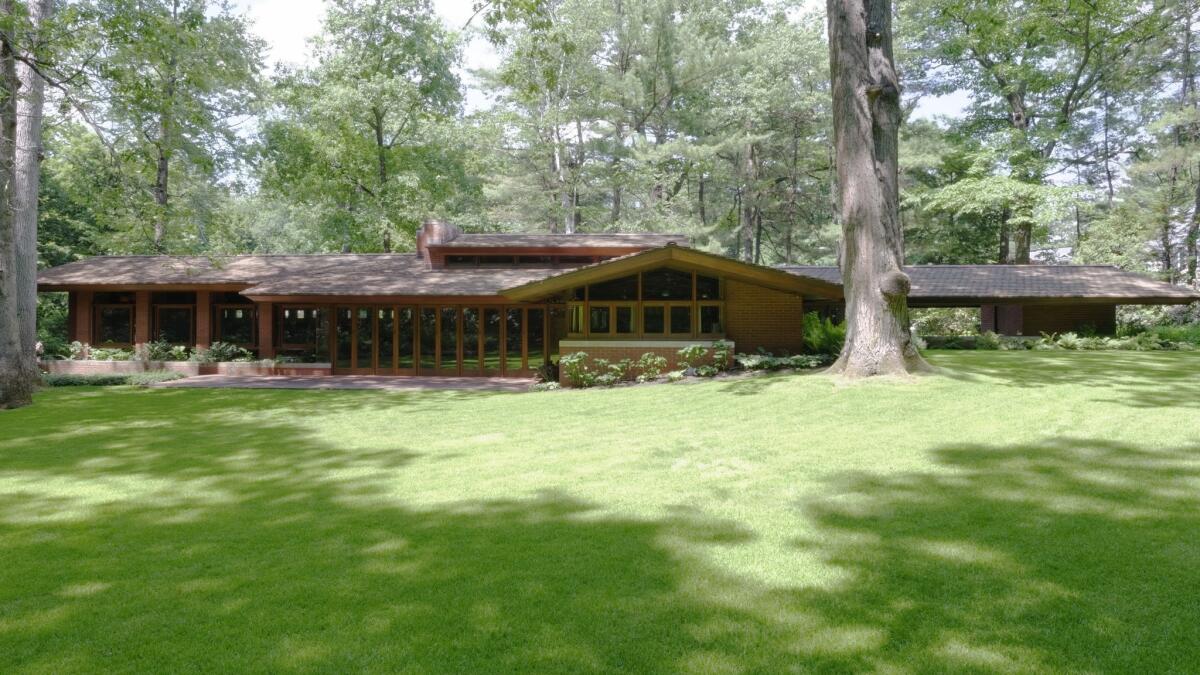
Wright’s Zimmerman House in Manchester, N.H., is the site of “special focus tours” throughout 2017. The house, part of the Currier Museum of Art, is unique in that Wright designed not only the building but also the interior, the furniture, the gardens and even the mailbox.
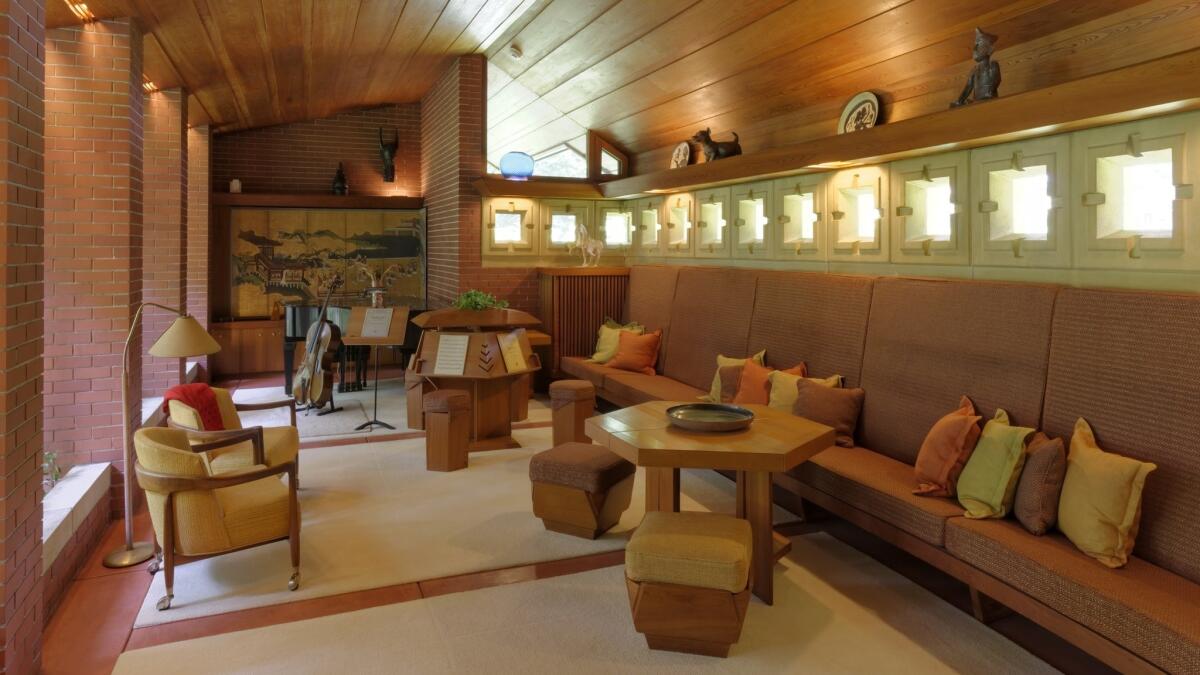
Dr. Isadore and Lucille Zimmerman donated the property to the museum in 1988.
Tours are offered Thursdays through Mondays.
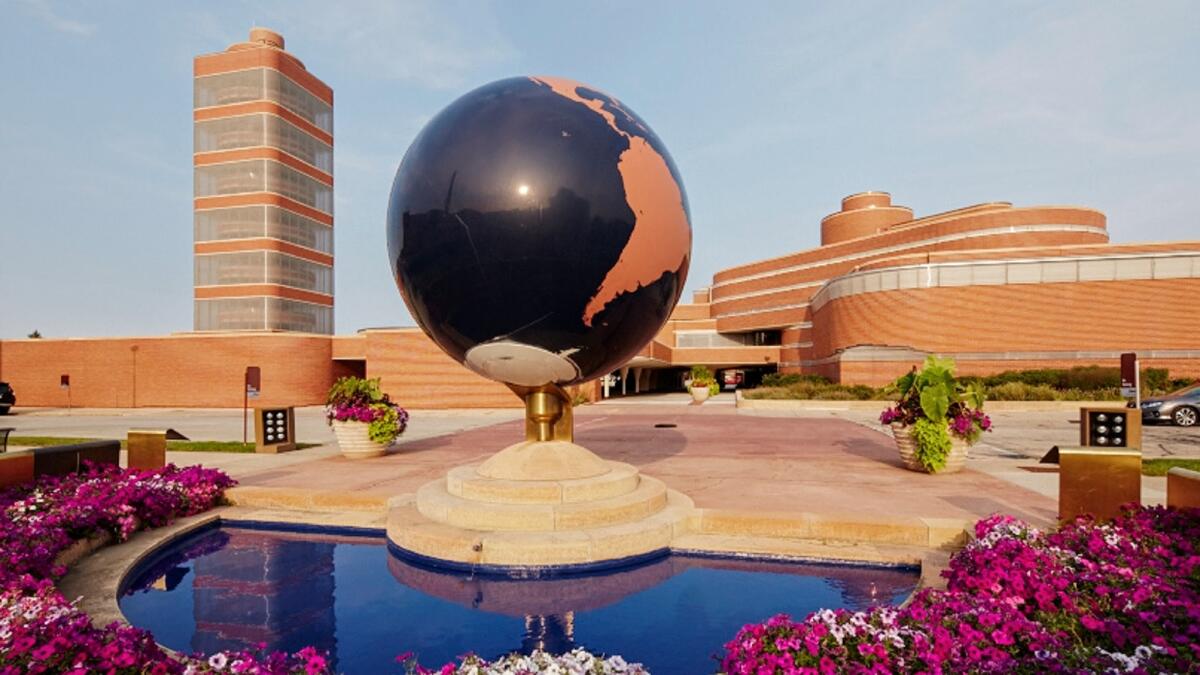
From New England, head to the Midwest — and specifically Wisconsin, Wright’s native state — to view an amazing variety of his works.
The new Frank Lloyd Wright Trail leads visitors to nine sites as it winds through the southern part of Wisconsin.
Possibly the most impressive and certainly the most imposing structures are on the SC Johnson corporate campus in Racine, Wis.
The Johnson family first commissioned Wright in 1936 to create its futuristic Administration Building, and returned to Wright after World War II to engage him to design its Research Tower.
Scientists created some of Johnson Wax’s best-known products, including Glade and Pledge, in the 15-story building, opened in 1950,
In 2015, the company offered visitors their first look inside the office of Herbert F. Johnson Jr. on the third floor of the Administration Building. (H.F. Fisk Jr., grandson of the company’s founder, commissioned Wright to create this building.) It includes the executive’s original desk, designed by Wright.
All tours are free, but reservations are required.
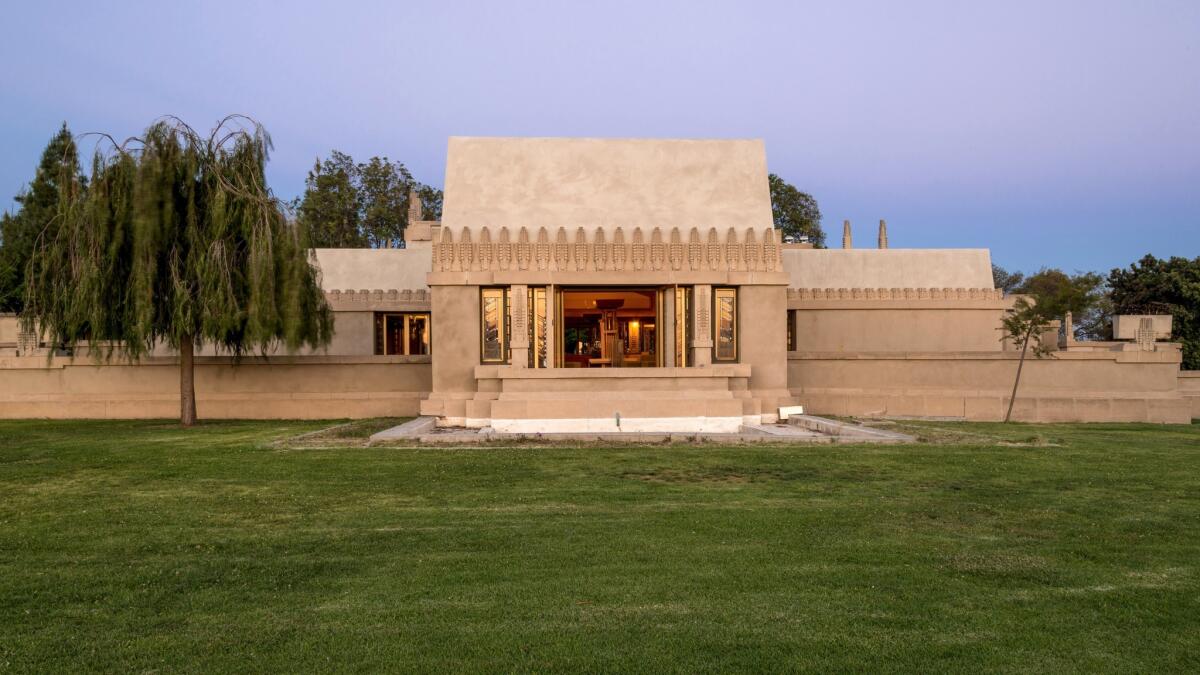
Southlanders can get a taste for the architect’s innovations at Barnsdall Art Park (4800 Hollywood Blvd., Los Angeles), which encompasses Hollyhock House.
The home, built between 1919 and 1921, was Wright’s first project in L.A. The park’s website notes that Wright drew on Southern California’s temperate climate in his design.
“In addition to the central garden court, each major interior space adjoins an equivalent exterior space, connected either by glass doors, a porch, pergola or colonnade,” the website says.
On Fridays through Sept. 22, adults can peek inside Hollyhock House during the Barnsdall Friday Night Wine Tastings.
Tastings that include the tour are $50. They’re a fundraiser for the park.
ALSO
8 great campgrounds in California
Have lunch at the Polo Grounds in Beverly Hills
Sign up for The Wild
We’ll help you find the best places to hike, bike and run, as well as the perfect silent spots for meditation and yoga.
You may occasionally receive promotional content from the Los Angeles Times.



